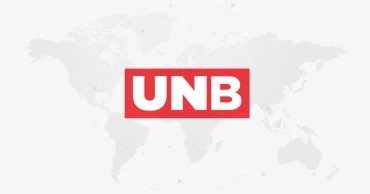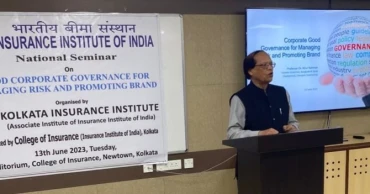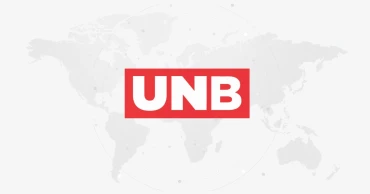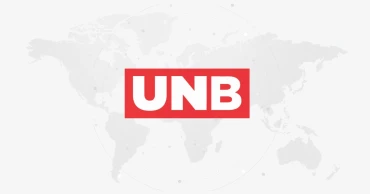Dr Atiur Rahman
BFIU seeks bank records of ex-Bangladesh Bank governors, deputies
The Bangladesh Financial Intelligence Unit (BFIU) has sought bank account details of three former governors and six former deputy governors of the Bangladesh Bank.
The move comes following a request from the Anti-Corruption Commission (ACC) as part of an investigation into allegations of corruption and mismanagement in the banking sector.
The three former governors are Dr Atiur Rahman, Fazle Kabir and Abdur Rouf Talukder, all of whom served during the 15-and-a-half-year rule of the Awami League government.
The allegations suggest that the country’s banking sector was systematically weakened during their tenure.
The six deputy governors whose bank accounts have been subpoenaed are Sitangshu Kumar Sur Chowdhury (SK Sur), Masud Biswas, SM Moniruzzaman, Abu Hena Mohammad Razee Hasan, Kazi Saidur Rahman and Abu Farah Mohammad Naser.
Allegations Against Former Governors
Dr Atiur Rahman’s tenure was allegedly marked by a weak regulatory oversight, which is said to have enabled financial scandals such as the Hall-Mark and Basic Bank loan scams.
He is also accused of being a ‘mastermind’ behind the cover-up of the 2016 Bangladesh Bank reserve heist, an event that ultimately led to his resignation.
BFIU seeks account details of Islami Bank chairman, family
During his time as governor, Fazle Kabir allegedly approved the controversial takeover of Islami Bank Bangladesh and Social Islami Bank by the S Alam Group.
According to the information, he allegedly approved these takeovers in the dead of night, paving the way for large-scale looting at the banks.
He is also accused of relaxing loan policies to conceal default loans, keeping interest rates artificially low at 9 percent and introducing methods for loan defaulters to get off with minimal payments.
Serving as governor for two years, Abdur Rouf Talukder is said to have made numerous controversial decisions. He resigned from a secret location after the fall of the Awami League government.
The report claims that his tenure saw the continuation of fraudulent loan distribution and that he failed to address irregularities, with allegations that he became an accomplice to the businesspeople involved.
He reportedly issued a new policy offering significant concessions to loan defaulters and allegedly had new money printed to provide funds to S Alam Group banks.
According to sources, the three former governors have largely remained out of the public eye since the change in government.
BFIU prepares to recover Tk 15,000 crore from seized accounts
Dr Atiur is believed to have left the country following the fall of the Hasina government, although his passport has been ‘blocked’ over his alleged link to the reserve heist.
Fazle Kabir is believed to still be in Bangladesh but has not appeared in public, while Abdur Rouf Talukder reportedly went into hiding after August 5, though he is also thought to remain in the country.
Deputy Governors Also Under Scrutiny
Among the former deputy governors, SK Sur Chowdhury and Masud Biswas, the latter a former chief of the BFIU, are now behind bars on charges of amassing wealth beyond their known sources of income.
The report also makes serious allegations against the others, accusing SM Moniruzzaman of halting bank inspections during his tenure; former BFIU chief Razee Hasan of failing to act against money laundering under his watch; Kazi Saidur Rahman of triggering turmoil in the foreign currency market; and Abu Farah Mohammad Naser of crippling the banking sector by excessively relaxing loan policies.
6 months ago
Dr Atiur, Dr Barkat among 23 sued by ACC
The Anti-Corruption Commission (ACC) has filed a case against 23 people, including former Bangladesh Bank Governor Dr Atiur Rahman and economist Dr Abul Barkat, for allegedly embezzling TK 297 crore under the guise of the Enontex Group.
Deputy Director Nazmul Hossain at the ACC’s Dhaka Integrated District Office filed the case on Thursday, said ACC Director General Md Akhter Hossain.
The accused include high-ranking officials from Janata Bank, such as former Deputy Governor Abu Hena Mohammad Razi Hasan, former directors, and managing officials.
The charges involve creating false records through forgery and money laundering to embezzle loan funds in collaboration with officials from the bank.
TIB raises question over move to appoint graft accused in ACC
The case was filed under several sections of the Penal Code and the Prevention of Corruption Act, 1947. The case had actually been filed earlier and closed in 2022 for lack of evidence, but new developments have led to its reopening.
1 year ago
Dr Atiur Rahman nominated for Khan Bahadur Ahsanullah Gold Medal
Dhaka Ahsania Mission has nominated renowned economist and Emeritus Professor of Dhaka University Dr Atiur Rahman to for "Khan Bahadur Ahsanullah Gold Medal" for the year 2021 for outstanding contributions to socio-economic development and the country’s economy.
Born on August 3 1951, in Jamalpur district Atiuris not only a distinguished academic but also serves as the president of the Executive Committee of the Centre for Advanced Research in the Arts and Social sector at the Unnayan Shamannay, according to a press release.
BRTA harassing transport workers during driving licence, dope tests: BALTWF
Before joining the Department of Development Studies at the DU as a professor in 2006, he spent a significant period at BIDS as an economist. As the governor of Bangladesh Bank from 2009 for approximately seven years, he spearheaded the financial services sector, championing the "Silent Revolution of Financial Inclusion" with innovative programmes for building Digital Bangladesh, it said.
Widely known as the economist of the Poor for his people-centric research and the "Green Governor" for his leadership in environmentally friendly finance, Dr Atiur incorporated Rabindranath’s socio-economic development ideas into his work.
Increase revenue, quality of services at airports: Faruk Khan tells CAAB
Besides publishing over 80 books, including “Peasants and Classes” and “Bangabandhu Shajoj Path,” he has authored numerous research papers both nationally and internationally, the release said.
His accolades include the Best Central Bank Governor Asia and Pacific 2015 (Financial Times), the Gusi Peace Prize, the Indira Gandhi Swarna Smarak, the Bangla Academy Literary Award 2015, the Bangla Academy Rabindra Award 2021, and the Rabindra Academy Award 2022.
An eleven-member jury board consisting of renowned personalities from various sectors of society unanimously decided to award the medal to Atiur.
2 injured in Sylhet CNG pump fire sent to Dhaka
Atiur will be given a 20-gramme gold medal, Tk 2 lakh, and a crest with a monogram, and a certificate, added the release.
Established in 1986 in honour of Hazrat Khan Bahadur Ahsanullah, a distinguished educationist, social reformer, Sufi saint, Assistant Director of the then Education Department, and founder of Dhaka Ahsania Mission, the award will be officially handed over to him soon.
2 years ago
Corporate good governance should be a part of our life: Dr Atiur Rahman
Economist Dr Atiur Rahman said that corporate good governance should be a part of life, not the expectation, which will be a source of value creation for any of the entities in the private and the public sectors.
He said not only in the financial sector, but corporate good governance is also essential for all kinds of enterprises to extend the industrial revolution.
Former Bangladesh Bank Governor Dr. Atiur said this at a seminar in Kolkata organised jointly by the Insurance Institute of India and Kolkata, Insurance Institute on Tuesday (13 June 2023).
Also Read: ICCB calls for good governance to ensure international compliance
Presided by Basant Kumar Naik, Principal of the Institute of Insurance in Kolkata the seminar was attended by Babu Paul, General Manager, National Insurance; Miss Y. Lama, an insurance expert; Professor Konika Chatterjee, Department of Commerce, Calcutta University; and faculties, students, and experts from financial sectors.
“Customer trust is the foundation of good governance of any organization. They want delivery and not empty promises,” Dr Atiur said.
Also Read: Lawyers can play a big role to ensure good governance: President
Again, if they don’t get the promised services, they must be provided with a customer interest protection mechanism to redress their grievances, he pointed out.
The long-term sustainability of the organisation depends largely on corporate good governance, which thrives on the execution of well-set-out rules and procedures of the board with enough competent independent members, he said.
Also Read: Proposed amendments to banking act don’t go far enough in quest for good governance: Experts
Dr. Atiur said that knowledge management and human resource management are pivotal to good governance. And for up-to-the-mark knowledge management- there is no alternative to ensuring exchanges between national, regional, and international peers.
He urged that such discourses and exchanges must be facilitated so that governance practices can be revisited and augmented on a regular basis.
2 years ago
Budget FY23-24: Focus should be on tackling macroeconomic challenges, says Dr Atiur Rahman
Bangladesh's upcoming national budget for FY23-24 should focus on macroeconomic challenges such as taming inflation, better revenue collection, rein in growing defaulted loans and IMF-suggested reforms.
This was stated by Dr Atiur Rahman, former governor of Bangladesh Bank in conversion with UNB on the expectations from the budget to be placed in parliament on June 1.
Dr Atiur said budget will certainly have to address a number of macroeconomic challenges. The foremost is, of course, the inflation which is still running high at more than nine percent.
“Bringing this down to 6.5 percent in the next fiscal year may not be easy unless we go fast towards market-based solutions of major macroeconomic challenges arising out of administratively controlled indicators like rate of interest and foreign exchange rates,” he said.
Read more: Tk337.60 crore budget for FY2023-24 approved for placing in Parliament
Thanks to the IMF programme, the budget may encourage regulatory authorities to go for an ‘interest rate corridor’ and a ‘single exchange rate’ that are long overdue. If we could have followed this time- tested path of market-driven macroeconomic management many of the ongoing challenges would have been addressed by now, said the development economist.
“Yet, it is better late than never,” he said adding “Of course, some sectors like agriculture, export and remittances would still need fiscal support and they must continue to get it.”
This, he said, will be desired support to the real economy which can contribute towards easing supply-side constraints to reduce inflation to some extent.
However, constraining demand pressure by raising interest rates still remains a major move to reduce inflation. “I hope the macroeconomic managers would like to take this prudent path in the next fiscal year without any hesitation.”
Read more: Curbing inflation without destabilising macroeconomic situation presents challenge for budget: Selim Raihan
He said the rich are currently enjoying huge advantages of negative rate of interest when adjusted against inflation rate may raise political economic hurdles against such a move. But the gains of long-term macroeconomic stability must guide the policy makers to overcome such pressures, said Dr. Atiur.
“I think one must not look at IMF conditionalities negatively as the budget makers have also been flagging such reforms for quite some years. The local economists in general have also been arguing for a more balanced budget with manageable deficits,” he said.
Bangladesh, of course, has done pretty well in maintaining budget deficits around five percent. This year it may go above five percent (5.3%) which is not that bad.
“To maintain this level of budget deficit we need to raise our domestic resources by reforming our tax administration system through higher levels of digitalization and a more efficient tax system,” Dr Atiur said.
Read more: Tk 75,000cr revenue shortfall to widen current fiscal’s budget deficit: CPD
The banking system has been well digitised in the meantime. Why should the NBR not take advantage of this modernisation of the money market and replicate a fully digital revenue administration system?, he questioned.
Since the inflation remains very high, the fiscal measures for higher levels of social security for the extreme poor and lower income groups in terms of higher food subsidies and support for agriculture must continue in the upcoming budget as well. Strategic support for digital infrastructures for making the economy smarter must also be the cornerstone of the next budget, he pointed out.
“Simultaneously, we must keep our budget as cautious as possible to restrain the inflationary outlook,” he noted.
Read more: Inflation, revenue shortfall, dollar crisis the major challenges for economy ahead of election-year budget
2 years ago
'Bangladesh's progress in 50 years extraordinary'
Notwithstanding political crises or natural calamities at different times in the past 50 years, Bangladesh has turned around incredibly.
The encouraging words came from none other than renowned economist and former Governor of Bangladesh Bank, Dr Atiur Rahman.
"Despite many challenges, Bangladesh has surpassed many neighbouring countries in terms of competency," he said at a seminar on Bangladesh’s progress in 50 years.
Also read: Bangladesh elected to UNESCO Intangible Cultural Heritage committee for 4 years
3 years ago
Financial interoperability necessary for growth economy; Dr Atiur
Former Governor of Bangladesh Bank Dr Atiur Rahman said ‘financial interoperability’ is necessary for maximizing the benefits of financial inclusion.
Mobile money interoperability allows customers of different mobile financial services providers to interact with each other.
“This will impart dynamism in the economy and growth will be further strengthened,” he said.
Dr Atiur also noted that due to the rolling out of services like Mobile Financial Service (MFS) and agent banking, financial inclusion has been simplified in the country.
Read:IBBL reaches Tk 1.40 trillion deposits, 1.16 trillion investments: IBBL MD
He was addressing the inaugural session of a training programme titled “Financial Interoperability in Bangladesh: Challenges and Way Forward” as the chief guest, organized jointly by the Policy Research Institute (PRI) and the Economic Reporters’ Forum (ERF), at the ERF auditorium in the capital on Wednesday.
Presided over by ERF vice president and AFP Bureau Chief Shafiqul Alam, ERF general secretary SM Rashidul Islam delivered the welcome speech.
PRI Research Director Dr Abdur Razzaque, Dhaka University Economics Department Prof Dr Bazlul H Khondker and Bangladesh Bank executive director Debdulal Roy made deliberations in the technical sessions of the programme.
Financial interoperability is such a scope which could be utilized later on after exchanging information from one system to another or making transactions, speakers said at the function.
It is like the scope for holding direct transactions between the clients of two separate MFS companies as well as the scope for transferring amounts between the clients of two separate banks, they said.
Currently such kind of transaction is called interconnectivity. The Bangladesh Bank launched interoperability among the MFS companies in October 2020, but it was halted within hours of its launching. Since then, the service is yet to be restored, they added.
Dr Atiur also said financial interoperability is necessary to adapt with the evolving changes adding that measures should be taken so that the common people can make transactions in the normal shops through scanning QR codes.
“There is also a demand for this, but the government will have to develop necessary infrastructures in this regard, which also requires investment. The Indian government has invested a lot in introducing such a system. Bangladesh also needs to do the same,” he added.
Read:DCCI urges Rwanda to import more Bangladeshi products
He opined that if the private companies make the investment instead of the government, then they would charge the clients against their will. “It will create doubt about the sustainability of the system. For this, there is a need to make proper allocations in the budget,”
Debdulal Roy said whatever transaction and exchange of information are taking place in the country’s financial sector is not interoperability, rather it is interconnection.
“Now, time has come for going towards interoperability. It will make transactions multidimensional and thus will boost the strength of the economy,” he added.
3 years ago
Sustainable development: 'Creating social capital the need of the day'
Localisation, inclusiveness, and tolerance are necessary to create social capital, which is necessary for sustainable development in Bangladesh, speakers said at a virtual annual conference Wednesday.
Social capital has to be based on four principles of Bangladesh's Liberation War of 9171 and international commitments like the Grand Bargain, Development Effectiveness, and the Charter for Change, they said at the concluding day of the Bangladesh NGO-CSO Coordination Process (BDCSO Process) annual virtual conference.
Dr Atiur Rahman, former governor of the Bangladesh Bank and executive director of Unnayan Shamannay, chaired the programme.
Judith Herbertson, development director of the British High Commission in Dhaka, Ignacio Packer, executive director of the International Council of Voluntary Association, and Johannes van der Klaauw, country representative of the UNHCR Bangladesh, attended the conference as chief guests.
Read: Report: Bangladesh among 3 top performers in sustainable development
Atiur said, "Although there are vaccine apartheid and a lot of conflicts worldwide, it is a matter of pride that Bangladesh, with its limited capacity, has given shelter to millions of Rohingyas. There is little effort from international actors and developed countries on repatriation. It is a huge pressure on our economy, but we are committed to their dignity."
Johannes said they give high importance to the repatriation of Rohingyas. "UNHCR is fully with the government to contain criminal activities in the camp."
Judith said, "British people are committed to assisting localisation and local civil society. There are already joint need assessment and coordination structures with local NGOs/CSOs. And the British government wants to see a vibrant civil society here."
Sudhanshu Shekar Sing, executive director of Humanitarian Aid International India, Sharif Jamil, general secretary of Bangladesh Poribesh Andolon, Murshed Alam Sarker, chairman of Credit Development Forum, joined the conference as special guests.
Read: Creativity must for sustainable development: Dipu Moni
Murshed Alam Sarker said international actors should not focus on the capacity deficit of Bangladeshi CSOs/NGOs. "They should leave the operational leadership to the local NGOs, instead."
AHM Bazlur Rahman, chief executive officer of Bangladesh NGOs Network for Radio and Communication, said: "Localisation is also necessary to gear the NGOs up to prepare them for Bangladesh's post-LDC graduation."
The three-day annual meeting of the network of around 600 local and national NGOs-CSOs began on October 23 and concluded yesterday.
4 years ago
Dr Atiur’s book on Bangabandhu published in Dhaka and Kolkata
Eminent economist, former Governor of Bangladesh Bank and Bangabandhu Chair Professor of Dhaka University Dr Atiur Rahman said he will continue inspiring the young generation through enlightening them more about the life and works of the Father of the Nation, Bangabandhu Sheikh Mujibur Rahman.
6 years ago
Ex-BB governor Atiur for youth engagement through leadership
Dhaka, Aug 3 (UNB)- Former Bangladesh Bank governor Dr Atiur Rahman on Saturday urged the youth to step forward and volunteer as the country faces different challenges.
6 years ago





.jpg)









